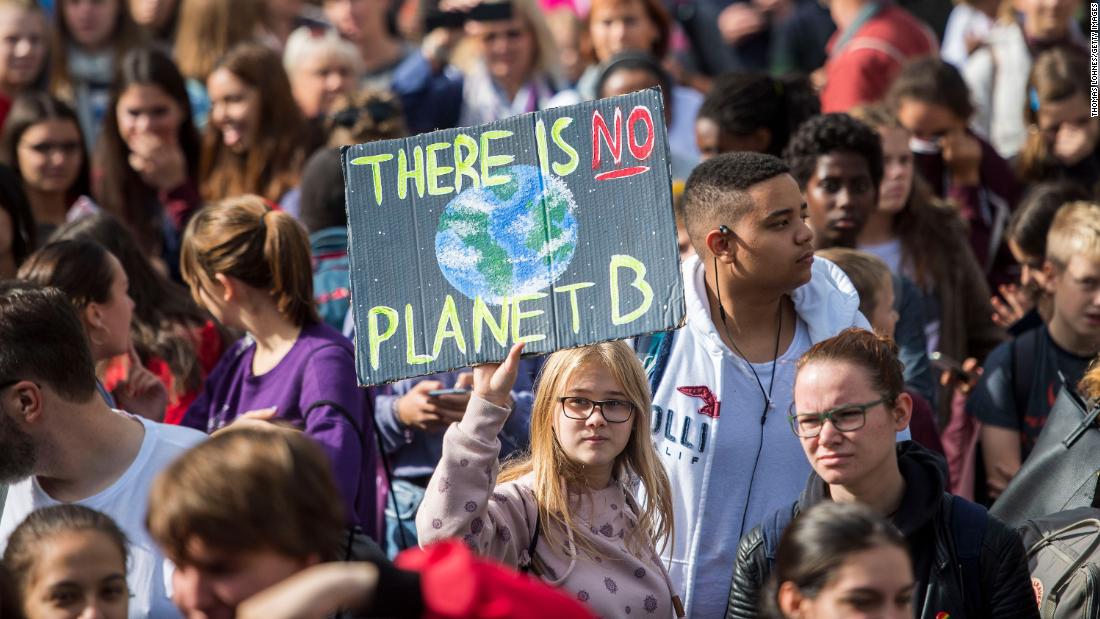What do you see when you think about the future of our communities, our country and our world?
For me, this is the first moment in my life in which there seems to be both a will and a way to address the environmental crisis at the scale that science and justice demand. But the clock is ticking, and we need to take immediate action to achieve a cleaner, healthier and more sustainable future.
I find hope in what I’ve witnessed in my time as an activist: people on the frontlines are taking a stand and raising their voices to make great change. I find hope in our youth who are demanding environmental justice and repair. People from all walks of life are coming together with the shared goal of caring for our planet and our people.
But community power must be matched from the highest seats of power. It’s time for Congress to act.
For the past several months, Congress has
struggled to pass a
bipartisan infrastructure package and
the Build Back Better Act — legislation with the potential to propel clean energy progress and mitigate the climate emergency at a scale we urgently need. While lawmakers have been bickering over the price tag and holding the bills hostage in DC, our country has suffered.
Wildfires have burned in several states, sweeping across more than
6.5 million acres this year. Hurricane Ida left parts of Southern Louisiana
without power and
safe drinking water for weeks while the remnants of the storm wreaked havoc in the Northeast, causing historic rainfall, catastrophic flooding, and the deaths of
more than 50 people.
If taken together as proposed, the
Build Back Better Act and the bipartisan infrastructure package can create a more just and livable future for everyone. They include reasonable climate, conservation, and environmental justice provisions that can move us toward the goal of cutting carbon emissions
in half by 2030 — a science-based imperative to
save the planet.As of late, the proposed clean energy investments include clean energy tax credits, resilience investments, clean energy technology, manufacturing, and supply chain investments and incentives, as well as clean energy procurement. These investments must remain in this legislation throughout the ongoing negotiations. A clean energy future can create jobs, improve individual and community health, help stave off future climate disasters, and
lower utility bills and energy costs, making life more affordable for everyone.
It will directly improve the lives of those hardest hit by climate injustices, like families in
Maricopa County, Arizona, where nearly 1 in 9 children suffer from asthma in a place ranked by the
American Lung Association as one of the worst counties in the nation for ozone pollution.
For anyone feeling sticker shock at the price of the two bills, let’s remind ourselves that the media has not helped us understand the true costs of what’s being proposed. The
$550 billion of federal investments over the next five years in the bipartisan infrastructure bill is less than the
Pentagon’s annual budget — and adding $256 billion to the deficit
over 10 years is a bargain given that we’re making up for lost time and ensuring our viability on this planet.
We can afford this, America, and we must invest in our future now.
Debate and compromises in the US Capitol have gone on long enough. It’s time to act on this chance to make history. Members of Congress should remember that they work for the people of the United States and pass both bills.
Moves towards a clean energy future cannot wait. Industry giants will not come around on their own with pledges and plans. They’ve had their chance. It’s too late for that.
I’ve spoken out about the environment for decades. It’s comforting to have more voices in the mainstream pushing for change, especially now that the situation is increasingly dire. How many more voices are needed for our elected leaders to listen, move beyond their own interests, and act in the interest of the greater good — and generations to come?
What needs to happen next has never been clearer: Congress must come together and pass the Build Back Better Act and the bipartisan infrastructure package immediately.
There can be no more compromises.
Not a single provision or investment towards a safer, healthier, more just future can be downplayed or disregarded. There are no second chances in moments like this. It’s time.
![]()


